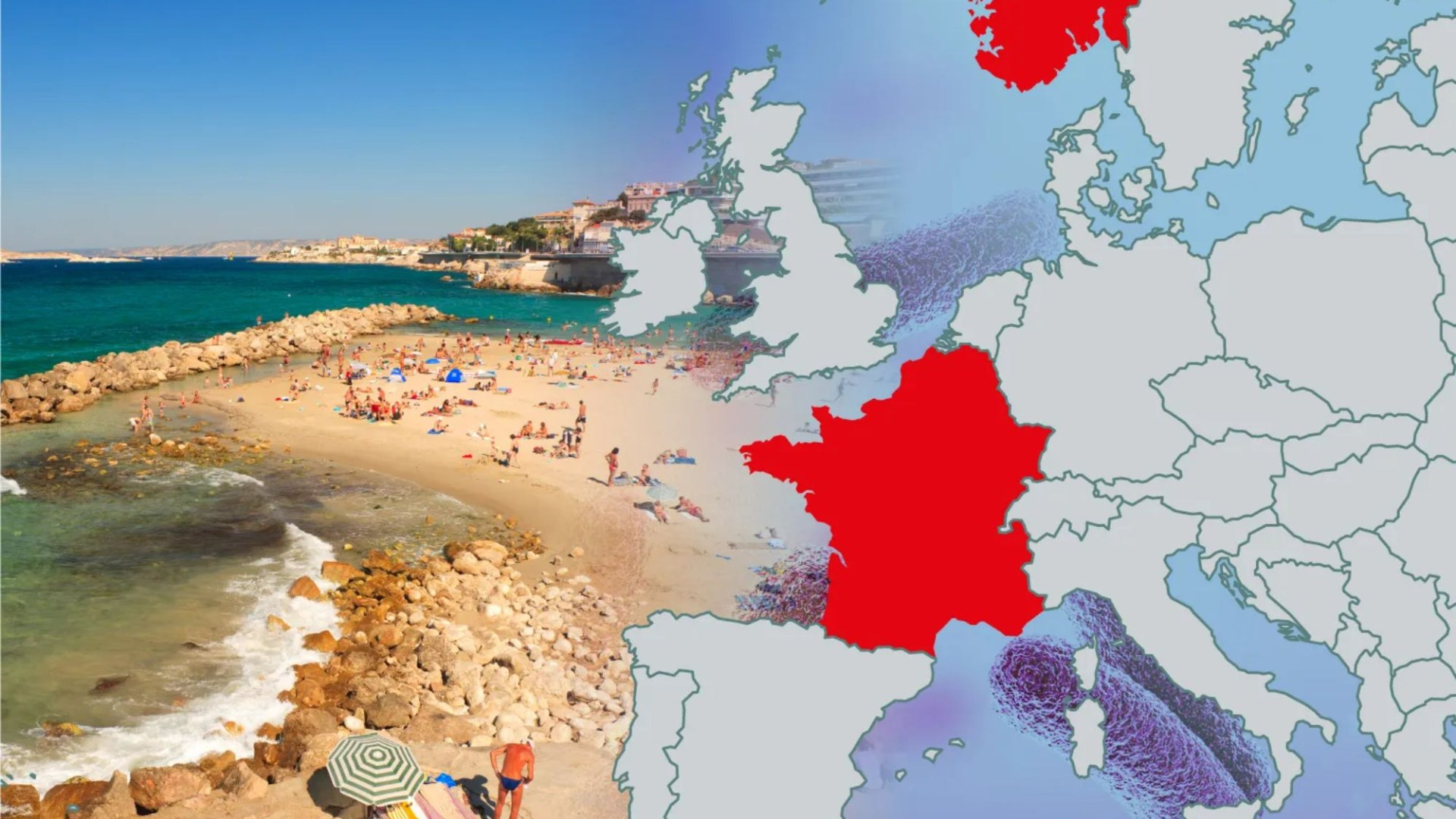BRITS travelling to France this summer have been warned of a food-borne parasite that causes bloody diarrhoea – which has sickened 133 people.
Cases of the nasty bug have also popped up in three other holiday hotspots.
1
The European Centre for Disease Prevention and Control (ECDC) warned of an outbreak of Yersinia enterocolitica that affected 136 people in four different countries.
The bacteria tends to passed on through eating contaminated food – especially raw or undercooked pork – and causes an illness called yersiniosis.
It can also be transmitted through coming into contact with someone who’s been handling pork products, drinking contaminated milk or untreated water, or contact with animals.
But this recent outbreak has been linked to been linked to cheese.
Read more on holiday warnings
The ECDC identified raw milk goat cheese produced in France “as a vehicle of infection”.
Between January and July 11 this year, 133 cases of yersiniosis were reported in France.
“An unusually high consumption of a raw milk goat cheese, a specialty from southeast France, was observed among the cases,” according to the ECDC.
It said products had been recalled in response to the outbreak.
The Provence-Alpes-Côted’ Azur region in southeastern France saw the largest number of cases, with 57 people falling ill.
Those affected ranged between three and 85 years of age, and 57 per cent of them were women.
“But cases have been identified in all regions of mainland France,” the ECDC noted.
“Among 57 interviewed cases, the most recent onset date is June 10,2 it added.
Symptoms of Yersinia infections often depend on people’s age, the Center for Disease Control and Prevention (CDC) said.
Young children tend to be struck with fever, stomach pain and diarrhoea that can be bloody.
Meanwhile, older children and adults might get pain on the right side of their abdomen that can be confused with appendicitis, as well as fever.
Sore throats are another symptom that can affect children.
Cases were reported in three other European countries.
Belgium reported that a man had contracted a Yersinia enterocolitica infection in April, with an identical sequence – biotype 2, serotype O:9 – to the French cases.
A women fell ill in Luxembourg in April and another contracted the food-borne bug in March in Norway.
The outbreak was flagged in a Communicable Disease Threats Report published by the ECDC on July 12.
In its most recent report – published July 19 – the ECDC said the outbreak was under “active monitoring”.
“Given the distribution of the implicated products in several EU/EEA countries, the risk of contracting yersinosis is high among consumers who have bought the implicated products or have been exposed in other settings before control measures have taken effect,” the health watchdog warned.
It said new cases may crop up in European countries or old cases may identified retrospectively.
“The reported cases may represent a small fraction of all cases due to lack of referred isolates and routine sequencing.
“As control measures have been implemented in countries, this reduces the risk for further human infections related to this event.”
What are Yersinia infections and how to treat them
Yersinia are bacteria that can make people ill and cause diarrhoea.
The two kinds of germ that can leave you with the runs include:
- Yersinia enterocolitica
- Yersinia pseudotuberculosis
The illness these kinds of Yersinia can cause is called yersiniosis, which can infect people who ingest the bacteria through contaminated food or coming into contact with someone who’s handled products with the bacteria.
Common causes of the infection include:
- Contaminated food, especially raw or undercooked pork
- Contact with a person who has prepared a pork product
Some less common causes include:
- Drinking contaminated milk or untreated water
- Contact with animals, their environments, or their poop
- Contact with another person (for example, by not washing hands thoroughly after changing the diaper of a child with an infection)
Young children tend to get:
- Fever
- Tummy pain
- Diarrhoea that can be bloody
Older children and adults may get:
- Fever
- Pain on the right side of the abdomen
How to treat Yersinia infections
People with diarrhoea should drink plenty of fluids to prevent dehydration.
Dehydration can happen quickly in young children. Give children with diarrhoea or vomiting extra fluids or oral rehydration salts.
See a GP if your child has
- Diarrhoea or vomiting lasting more than two days
- Bloody poop or pee
- A high fever
- Signs of dehydration, which include:
- Little or no peeing
- Having very dark pee
- Being very thirsty
- Having a dry mouth or throat
- Feeling dizzy or lightheaded
- Crying without tears
Source: CDC




